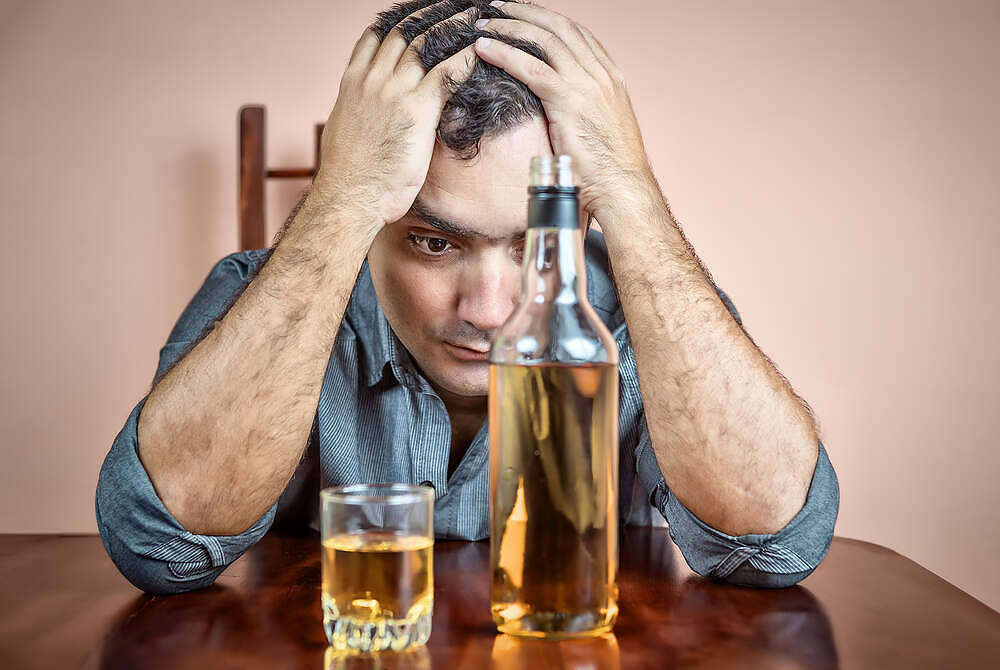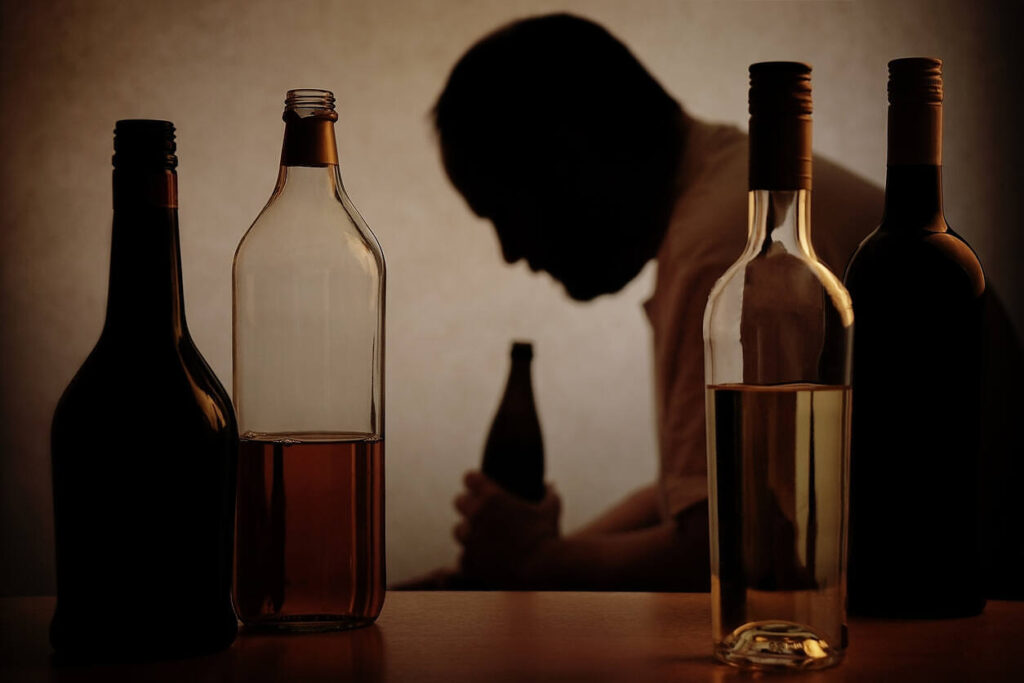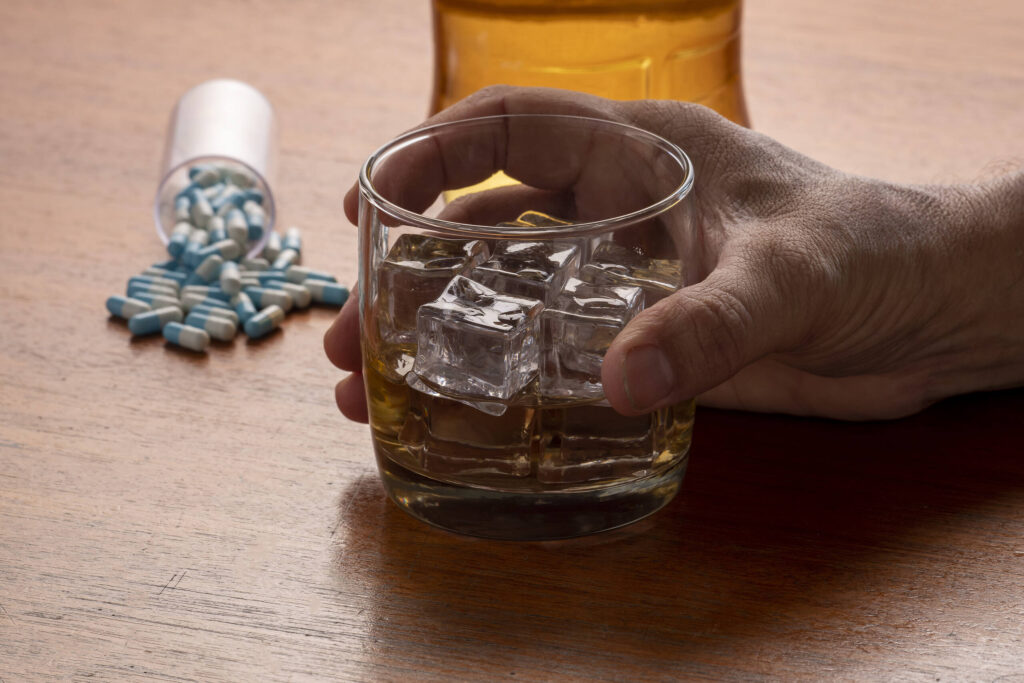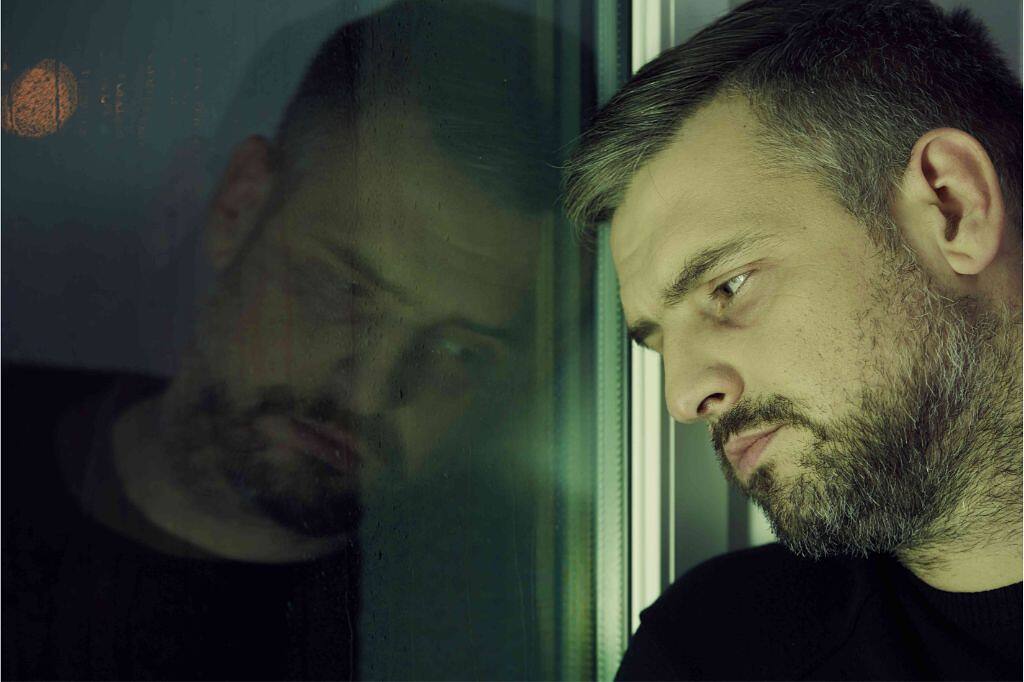
Anxiety is one of the most common mental health problems. During the pandemic, the British have drunk more alcohol due to loneliness, depression and anxiety.
Dramatic changes in all our lives during the past six months have increased anxiety levels.
Research, published in the Journal of Epidemiology and Community Health based on data from over 27,000 individuals, found the proportion of people drinking four or more times per week rose from 13.7% to 22% during the lockdown, with binge drinking up from 10.8% to 16.2%.
For those suffering from a pre-existing anxiety disorder, the temptation to find relief in alcohol or other substances can be immense.
What comes first, the alcohol or the anxiety?
Alcohol is a depressant drug which slows down the central nervous system, inducing feelings of relaxation and contentment. For a highly anxious person, alcohol can quickly become a solution to changing the way that they feel (albeit very temporary).
Whilst alcohol’s effects may almost immediately calm symptoms of anxiety, and there is a very high likelihood of feeling even more anxious once alcohol’s effects wear off. One of the more overriding symptoms of alcohol withdrawal and a hangover is anxiety.
Unless you are able to pinpoint a time where you suffered from anxiety whilst alcohol was not part of the equation, it can be difficult to determine if alcohol is causing your anxiety or if you are drinking to relieve the symptoms of an undiagnosed anxiety disorder.
Regardless of whether your alcohol problem or anxiety came first, one thing we can guarantee is that in the long run, frequent and/or heavy drinking will cause anxiety symptoms to become much worse.
What is anxiety?
Symptoms of anxiety can range from mild to severe. Like most mental health illnesses, symptoms usually start off mild and become worse over time when left untreated, or are incorrectly treated.
Anxiety symptoms result from an imbalance in the brain’s chemistry but can also be a learned response.
You may or may not be familiar with the term ‘fight or flight’? Fight or flight is the term used to describe how the body prepares itself physically and mentally for a perceived threat to life.
In those that do not suffer from an anxiety disorder, this response will only naturally occur when there is a legitimate threat. An example of this would be preparing to defend yourself against physical harm.
In a person that suffers from an anxiety-related the disorder, the brain communicates a threat when there isn’t one. For the person suffering, this can be extremely terrifying; their body and brain automatically go into fight or flight mode as a result of numerous chemicals being released into the brain and body.
Anxiety disorders can become so overwhelming that even the fear of anxiety developing can set off an anxious reaction. It is at this point that a person may well turn to addictive pharmaceutical drugs, alcohol or illicit drugs to prevent the symptoms of anxiety from developing.
Drinking or taking drugs to relieve the symptoms of anxiety does nothing to aid recovery; it will only make it harder. The cycle of anxiety and alcohol (or medications) can be extremely difficult to break without professional help.
What are the symptoms of anxiety?
Someone suffering from anxiety will experience both physical and psychological symptoms. As previously advised, these symptoms can vary in severity and frequency depending on the person
Physical symptoms of anxiety include:
- Rapid heart rate
- Dry mouth
- Dizziness
- Rapid breathing
- Diarrhoea
- Nausea/vomiting
- Increased sweating
- Increased need to urinate
- Hyper alertness
- Shaking/tremors
- Skin picking
- Hair pulling
- Nail-biting
- Drug or alcohol abuse
- Abuse of pharmaceutical drugs
Psychological symptoms of anxiety include:
- Uncontrollable racing thoughts with rapid cycling
- Feeling unable to get enough air into your lungs
- Feeling of impending doom (feeling that something bad is about to happen)
- Fear of dying
- Inability to concentrate
- Feeling out of control
- Feeling the need to escape a certain situation or environment urgently
- Dissociation
- Disconnection with reality
- Unable to rationalise thought patterns
Causes of anxiety disorders
Day to day life can commonly cause symptoms of anxiety with its trials and tribulations. In a person who suffers from an anxiety-related mental health illness, the causes are often deep-rooted and out of their control.
Going through this whole pandemic experience and other out-of-control events is hard to cope with.
Excessive use of alcohol can indeed cause anxiety symptoms to occur. It can also trigger the onset of an anxiety disorder.
In moderation, when drinking within the Chief Medical Officers safe drinking guidelines, alcohol is unlikely to cause anxiety. If, however, you regularly drink over the recommended safe limits or binge drink, this can have a thoroughly negative impact on your mental health as well as your physical health.
Anxiety following a heavy bout of drinking can tempt an individual to continue drinking to relieve the symptoms, this can lead to alcohol dependence, a very serious and often fatal alcohol use disorder.
Stopping alcohol doesn’t have to be hard or uncomfortable, not if you enlist the correct professional help. Our alcohol detox clinics provide extremely high levels of professional medical and therapeutic treatment, delivered by a team of multidisciplinary addiction treatment professionals.
Taking regular breaks from work, exercising, maintaining a regular schedule and getting enough sleep is a way of healthy ways to cope with stress which can help prevent substance use issues from developing.
For more information on how we can help you overcome anxiety and alcohol, call and speak to a friendly member of our team today.
Sources



